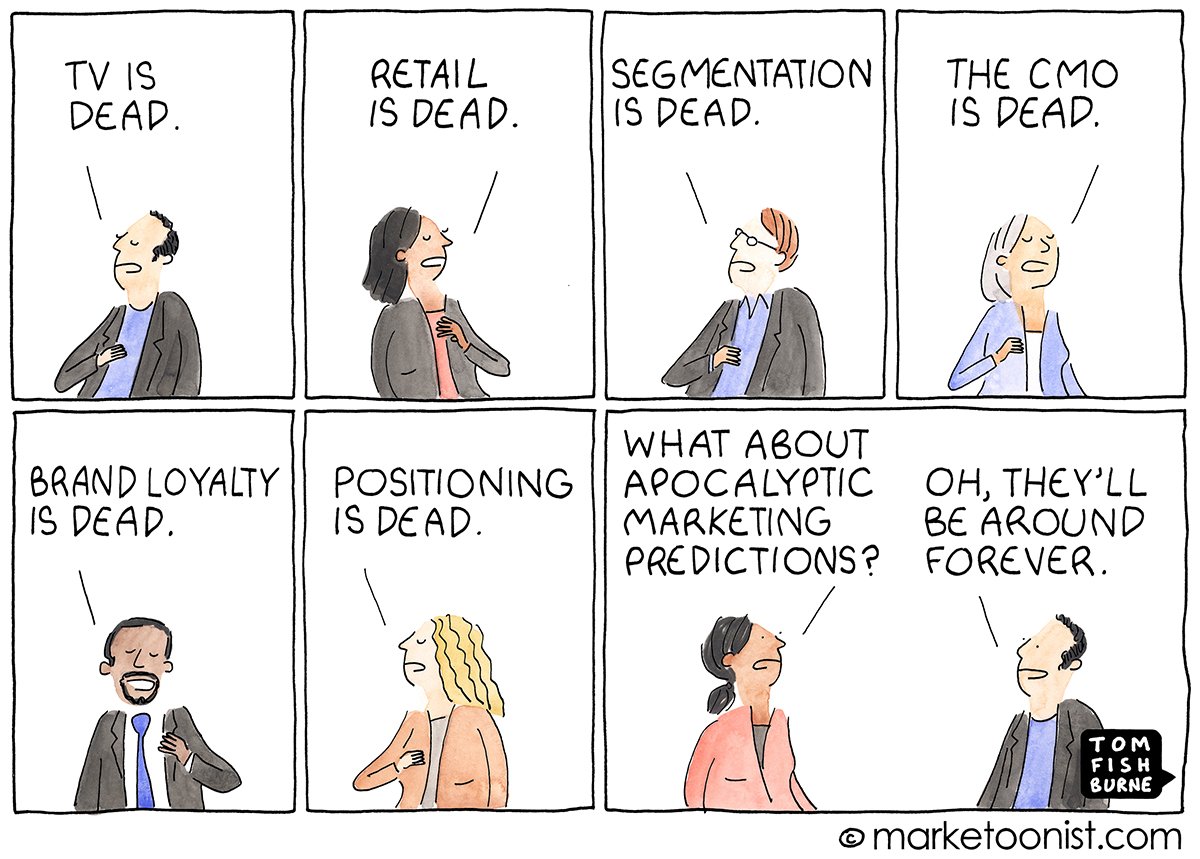Wird der B2B E-Commerce Ihr Verkaufsteam überflüssig machen?
Der Aufstieg der künstlichen Intelligenz im E-Commerce hat eine Debatte über die Zukunft der Vertriebsteams in Produktion und Vertrieb ausgelöst. Lesen Sie weiter, um zu erfahren, wie sich die Rolle des Vertriebs im digitalen Zeitalter entwickelt und wie Sie die richtige Balance zwischen menschlicher Interaktion und Selbstbedienung finden.


Überall auf der Welt fragen sich die CEOs von Produktion und Vertrieb: "Wird es mein Vertriebsteam in drei Jahren überhaupt noch geben?"
Ihre Unternehmen haben wahrscheinlich gerade stark in E-Commerce investiert, und erste Daten zeigen, dass die Kunden zu Selbstbedienungsbestellungen übergehen. Doch die erfahrensten Vertriebsmitarbeiter wehren sich und argumentieren, dass der B2B-Vertrieb nicht vollständig automatisiert werden kann.
Dieses Spannungsverhältnis zwischen digitalem und traditionellem Vertrieb ist die Herausforderung, die Optimizely zusammen mit Andy Hoar und Brian Beck von Master B2B kürzlich zu einem Roundtable brachte.
Im Folgenden erfahren Sie, was wir über die Zukunft der Vertriebsteams im B2B E-Commerce erfahren haben - mit einigen zusätzlichen Informationen für Sie.
Sind B2B-Verkaufsteams überflüssig?

Vor fast einem Jahrzehnt schrieb Andy Hoar von Master B2B, damals noch bei Forrester, einen Artikel mit dem Titel"Death of a (B2B) salesman", in dem er voraussagte, dass KI und E-Commerce die traditionellen Verkaufsteams überflüssig machen würden.
Dies ist zwar nicht ganz eingetreten, aber die digitale Landschaft hat die Art und Weise, wie B2B-Käufer mit Vertriebsmitarbeitern interagieren, erheblich verändert. Die Daten von Master B2B zeigen, dass 68% der B2B-Einkäufer unabhängige Recherchen der Interaktion mit Vertriebsmitarbeitern vorziehen. Dieses Ergebnis wird von Gartner bestätigt, das feststellt, dass Einkäufer nur 17% ihrer Zeit damit verbringen, sich während des Einkaufsprozesses mit Lieferanten zu treffen.
Bedeutet dies, dass Vertriebsteams im digitalen Zeitalter nutzlos sind? Optimizely glaubt nicht. Beratende Vertriebsmitarbeiter spielen neben dem E-Commerce immer noch eine wichtige Rolle im B2B-Einkaufsprozess. Ihr Wert liegt darin, dass sie dafür sorgen, dass die richtigen Produkte zur richtigen Zeit am richtigen Ort sind, dass sie die Kundenbindung fördern und starke Beziehungen aufbauen, die letztlich die Rentabilität steigern.
E-Commerce für Ersatzbestellungen nutzen
E-Commerce eignet sich hervorragend für häufige, kostengünstige Ersatzbestellungen und übertrifft in diesem Bereich oft die Leistung der traditionellen Vertriebsmitarbeiter. Doch auch bei diesen automatisierten Transaktionen kann menschliches Eingreifen einen Mehrwert schaffen. Vertriebsmitarbeiter, die mit E-Commerce-Systemen zusammenarbeiten, können Trends im Kundenverhalten analysieren, um potenzielle Möglichkeiten für eine personalisierte Betreuung zu erkennen.
Durch die Integration von E-Commerce-Daten in CRM-, ERP- und andere Geschäftssysteme erhalten die Vertriebsteams wertvolle Einblicke in die Online-Aktivitäten ihrer Kunden. Im Grunde genommen rationalisiert E-Commerce den Prozess, aber das menschliche Fachwissen stellt sicher, dass die Kunden den bestmöglichen Service und Support erhalten.
Die Rolle der KI im B2B-Vertrieb
Seit der Einführung von ChatGPT ist die Aussicht, dass KI menschliche Arbeitskräfte ersetzen könnte, ein heißes Thema geworden. Wenn wir jedoch über den Hype hinausblicken, ist klar, dass KI allein die Komplexität des B2B-Vertriebs nicht bewältigen kann.
Vertrauen in KI wird nicht über Nacht aufgebaut. Es ist erst dann verdient, wenn der Benutzer die zu erledigende Aufgabe mit Hilfe von KI wiederholt schneller und mit ähnlichen Ergebnissen erledigen kann, als wenn er sie manuell erledigen würde. Es stellt sich jedoch die Frage: Wie können Sie mit nicht-deterministischen KI-Modellen konsistent hochwertige Ergebnisse erzielen?
Außerdem kann KI zwar wiederkehrende Aufgaben in digitalen Kanälen automatisieren und menschliche Mitarbeiter für strategischere Aufgaben freisetzen, aber die menschliche Interaktion bleibt entscheidend für die Kundenzufriedenheit. Optimizely stellt bei seinem eigenen Kundenstamm fest, dass die wachstumsstärksten Kunden mehrere Kanäle nutzen, darunter sowohl KI als auch menschliche Kontaktpunkte, um ihre Kunden effektiv zu bedienen.
Kosten für den Service
Unternehmen stehen vor einer entscheidenden Frage: Ist es besser, 100 % Kundenzufriedenheit zu 100 % der Kosten zu erreichen, oder einen Teil der Zufriedenheit für drastisch reduzierte Kosten zu opfern? Mit anderen Worten: Rechtfertigt der Mehrwert, den die Vertriebsmitarbeiter schaffen, ihre Kosten (Gehalt, Schulung, Provision usw.)?
Trevor Pope von Optimizely hebt den Unterschied zwischen Wissen und Weisheit hervor. Da Online-Plattformen mit potenziell Millionen von Produkten immer komplexer werden, setzen effektive Vertriebsmitarbeiter ihr Wissen ein, um das Wissen zu ergänzen, das die Kunden durch Online-Selbstbedienung erlangen. In diesem Modell werden die Vertriebsmitarbeiter selbst zu Nutzern des E-Commerce, indem sie die Einführung von Online-Tools vorantreiben und mit den Kunden zusammenarbeiten, anstatt mit ihnen zu konkurrieren.
Dienstleistungen: Das wichtigste Differenzierungsmerkmal für den modernen Vertrieb
Auf dem heutigen Markt, auf dem die Produkte oft nahezu identisch sind, sind Dienstleistungen für Vertriebsmitarbeiter zum wichtigsten Mittel geworden, um einen Mehrwert zu schaffen und ihr Unternehmen von der Konkurrenz abzuheben. Allerdings haben B2B-Käufer jetzt auch B2C-Erwartungen, wenn es um Service geht.
DXPs wie Optimizely helfen den Vertriebsmitarbeitern, diese Erwartungen zu erfüllen, indem sie Funktionen wie integrierte Zahlung, optimierten Checkout, CRM, Datenintegration, KI-Optimierung und dynamische Content-Bereitstellung über alle Touchpoints hinweg anbieten.
Gleichgewicht zwischen menschlicher Interaktion und Selbstbedienung
Unternehmen, die Kunden sowohl über digitale Kanäle als auch über Vertriebsmitarbeiter erfolgreich ansprechen, haben eine erfolgreiche Strategie. Der Schlüssel dazu ist das Verständnis dafür, wann man eine personalisierte menschliche Note anbieten und wann man sich zurückziehen und den Kunden eine effiziente Selbstbedienung ermöglichen sollte.
Wenn Sie tiefer in dieses Thema einsteigen möchten, sehen Sie sich den On-Demand-Webcast von Optimizely mit Master B2B an und entdecken Sie weitere Ressourcen von Optimizely und Master B2B, die Ihnen weitere Einblicke in den B2B-Commerce geben.

